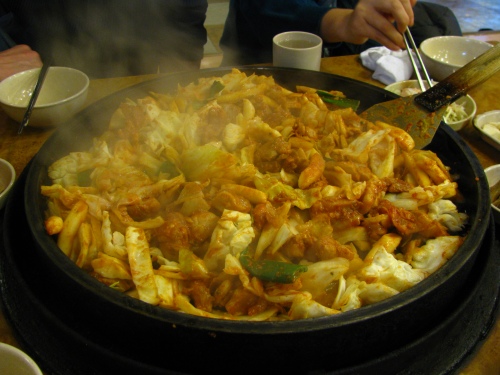If you’re like me you have a soundtrack to your life. I’m not saying this because I watch too many movies and too much TV and am therefore so deluded as to believe that there is always some sound guy watching my life, reading my thoughts, and choosing the perfect song for every moment. Nor am I under the delusion that there is a composer composing an original score to my life, frame by frame (mostly because if there was, I’m sure the music would be strikingly similar to John Williams, and I could not handle that). When I say I have a soundtrack I mean that there are albums I listened to at certain points of my life that have come to define them. All of my memories from that time are associated with that music, and all of that music, when heard in the present, brings back memories of that time.
My first single, The Beatles’ I Want to Hold Your Hand brings memories of my ten year old self at my grandparents house where I found my first Walkman and cassette tape. The Reel Big Fish defined my extra-curricular high school life as I listened to them on the bus to and from tennis matches throughout my four year career. John Mayer’s Continuum kept me company for my third semester at James Madison University when I just wanted to get the hell out of there, and when I finally did, the Cat Empire welcomed me to my new life at UVA (shut up all you John Mayer haters – sure, his songs are schmaltzy and relationship-y, but if you’ve seen him improv you know he’s an amazing musician, and Continuum is a great album). Ray Lamontagne’s new album God Willin’ and the Creek Don’t Rise was the score of my Habitat for Humanity experience as I spent a lot of time volunteering during my unemployed days after returning from abroad. But there are two albums in particular that I keep coming back to.
Before I left Korea and started the big trip that I had been waiting for for three long years, I bought a new mp3 player. I knew I had some long-ass train rides ahead of me (42, 38, and 72 hours to be exact, the first three legs of my trip from Beijing to Rome by train, not to mention the 25 hour ferry ride that kick-started the journey), so I chose to sacrifice gigabytes for battery life and physical size. I packed the 4 gigs that I had with Dispatch, Vusi Mahalasela, Paul Curreri, the Roots, and much, much more. One of the last artists I put on the player was Citizen Cope. I had only listened to one of his albums at the time: Every Waking Moment, and I really liked it, so I decided to do some quick downloading and add his other two albums to my player, and I am so glad I did. My first night on the ferry across the Yellow Sea, as I left Korea behind, I sat in front of the window, feet propped up against the glass, watching the sky and sea turn from blue to grey to black while listening to the self-titled album Citizen Cope along with The Clarence Greenwood Recordings. I sat and I listened and I thought about where I had just been and where I was going.
Citizen Cope kept me sane while I suffered through the unfortunate state of the economy class on a train across China; he held my hand while I shivered and shook and shat my way through a serious stomach illness on my two day train ride through Kazakhstan; he lulled me to sleep after a night of hot tea, snacks, and good conversation with two gorgeous Ukranian women as we swept our way through the former Soviet state; together, his music and I contemplated the fragile state of humanity as I rode the bus to and from Auschwitz; his lyrics and my eyes drank in the beautiful Czech countryside, the bustling metropolises of Germany, and the faded pastel colors of the Netherlands.
I can’t listen to his music without these memories cascading back, all at once. Each note brings back a new image, a new feeling, a new footprint connecting my present with my past in a way that is so real and so vivid that I can almost feel the wheels beneath my feet. It is the most amazing feeling.
As much as we travel to be in the present, we also travel for our future. We travel to create these memories that will be with us forever; memories that, if we’re lucky, we can call back for the rest of our lives to remind ourselves of what we’ve done, where we’ve been, and everything we’re proud of. We travel because we know how good it feels to have these memories. We know how exhilarating it feels to take a part of the world home with us, and how heart-wrenchingly satisfying it feels to leave a part of ourselves behind. We thus become inextricably bound to our footprints, and they come to define us as much as we define them.
If you’re like me, you’re always looking forward. Whether you’re searching for your next job, your next relationship, your next adventure, or even your next meal, you always have both eyes fixed straight ahead. Every once in a while, though, it’s good to look back. When I’m in the mood to remember I simply turn on my soundtrack and I find myself staring back at a trail of footprints disappearing over the horizon. It is the most amazing feeling.
Should you find yourself composing your own soundtrack, close your eyes, listen, breathe deeply, and feel your feet sinking into the earth.
